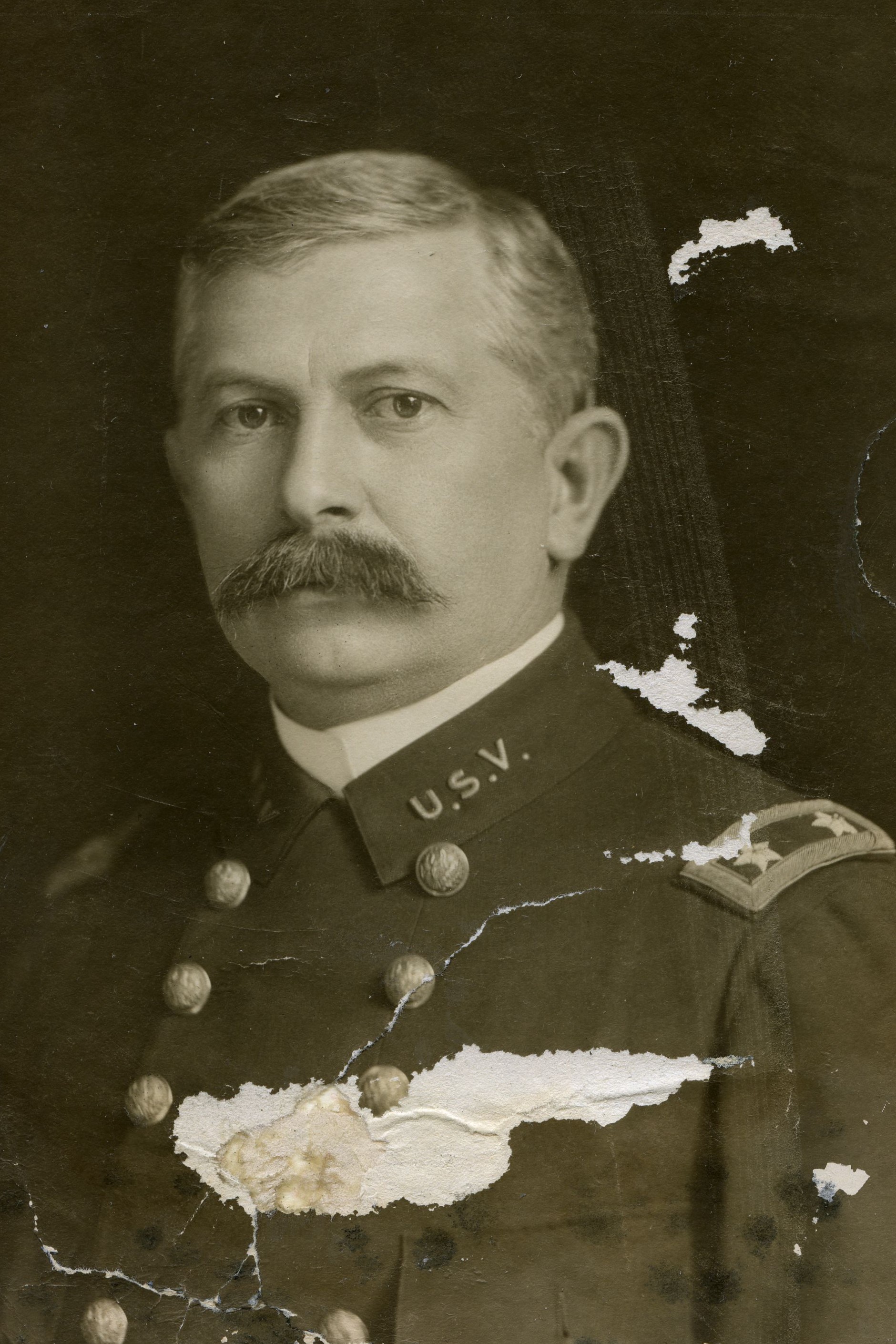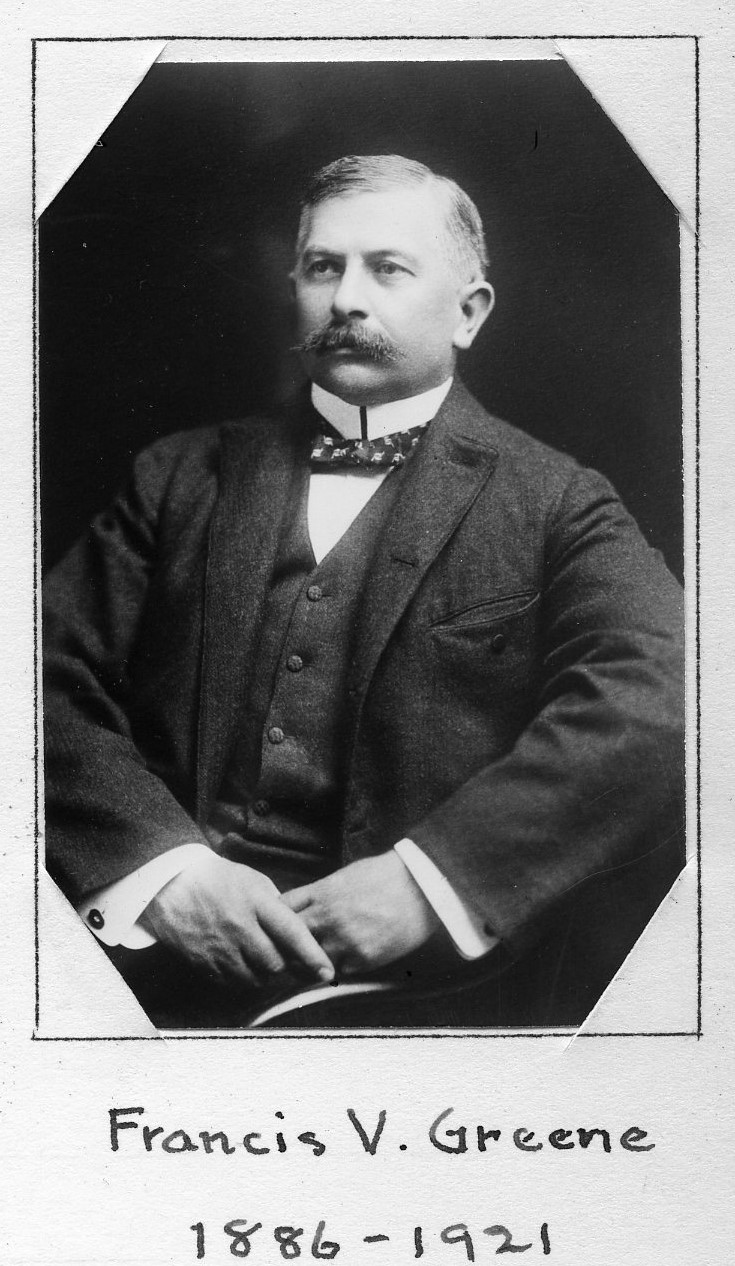Captain, Corps of Engineers, USA
Centurion, 1886–1921
Born 27 June 1850 in Providence, Rhode Island
Died 15 May 1921 in New York (Manhattan), New York
Buried Arlington National Cemetery , Arlington, Virginia
, Arlington, Virginia
Proposed by Peter S. Michie, Edward L. Burlingame, Richard Watson Gilder, and John Bigelow
Elected 2 October 1886 at age thirty-six
Archivist’s Note: Son of George S. Greene; brother of George S. Greene Jr.; nephew of Alexander Hamilton Vinton and Francis Vinton; cousin of Alexander H. Vinton and Francis Laurens Vinton; uncle of Carleton Greene, George de B. Greene, and Samuel Dana Greene
Proposer of:
Century Memorial
Francis Vinton Greene was yet another Centurion, the story of whose career carries the memory back to episodes of our national and civic history now relegated almost to tradition by the events of the European war. Graduating at the head of his West Point class too late to take part in the War of Rebellion, General Greene, none the less, knew the old army, notably the artillery and engineers, as few Americans knew it. In present-day perspective, an American military representative with the Russian army at Plevna and the Shipka Pass in 1877, and a brigadier under Merritt in the Philippine campaign of 1898, seems to belong to already almost forgotten history. But General Greene himself belonged emphatically to the present. It was the problems of the day that interested him. The great European war might have been for him the first of all international conflicts; Paris and the Marne were vastly more real than Manila. So, too, the Police Commissioner who twenty years ago attacked and for the time destroyed what New York people had come to regard as the impregnable stronghold of politics and graft was far more occupied with the problem presented by Hylan and Enright than with his own achievement of 1902.
In the Century the genial personality of General Greene, his large acquaintance with men and events, his modest but deeply interesting conversation on them, will be long remembered. He was a true Centurion, a faithful committeeman and constant visitor at the Club, where, as might have been expected from a brilliant writer on the history of his profession, it was in the library that one would almost always find him. He was a tower of strength to the effort of the United States to find itself in its relations to the European war; of our own participation in which he was one of the historians, as he was of the War of Revolution and the campaigns of 1863. Once it appeared as if General Greene would be Secretary of War at Washington; he was fond of telling the incident. President McKinley had conceded the force of the arguments of the General’s friends; he had acknowledged that New York ought to have the place. “But,” General Greene would add with complete satisfaction, “the President selected for a post, surrounded as that one then was by novel law complications, a better man and just as good a New Yorker. But he had to come to the Century Club after all, and the man he chose is now its president.”
Alexander Dana Noyes
1922 Century Association Yearbook



